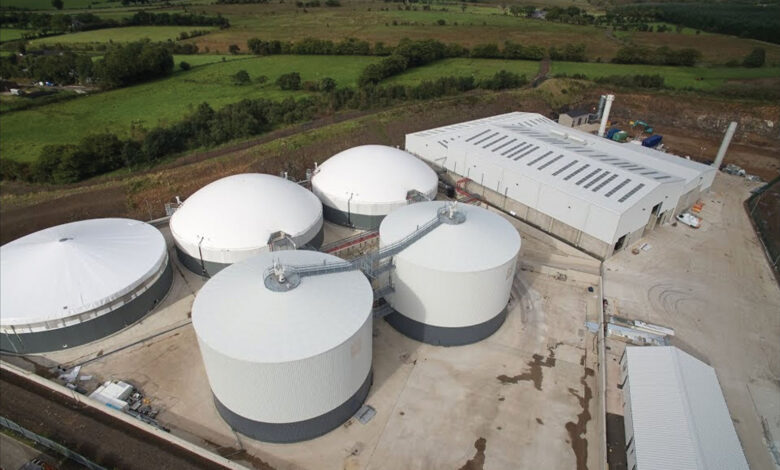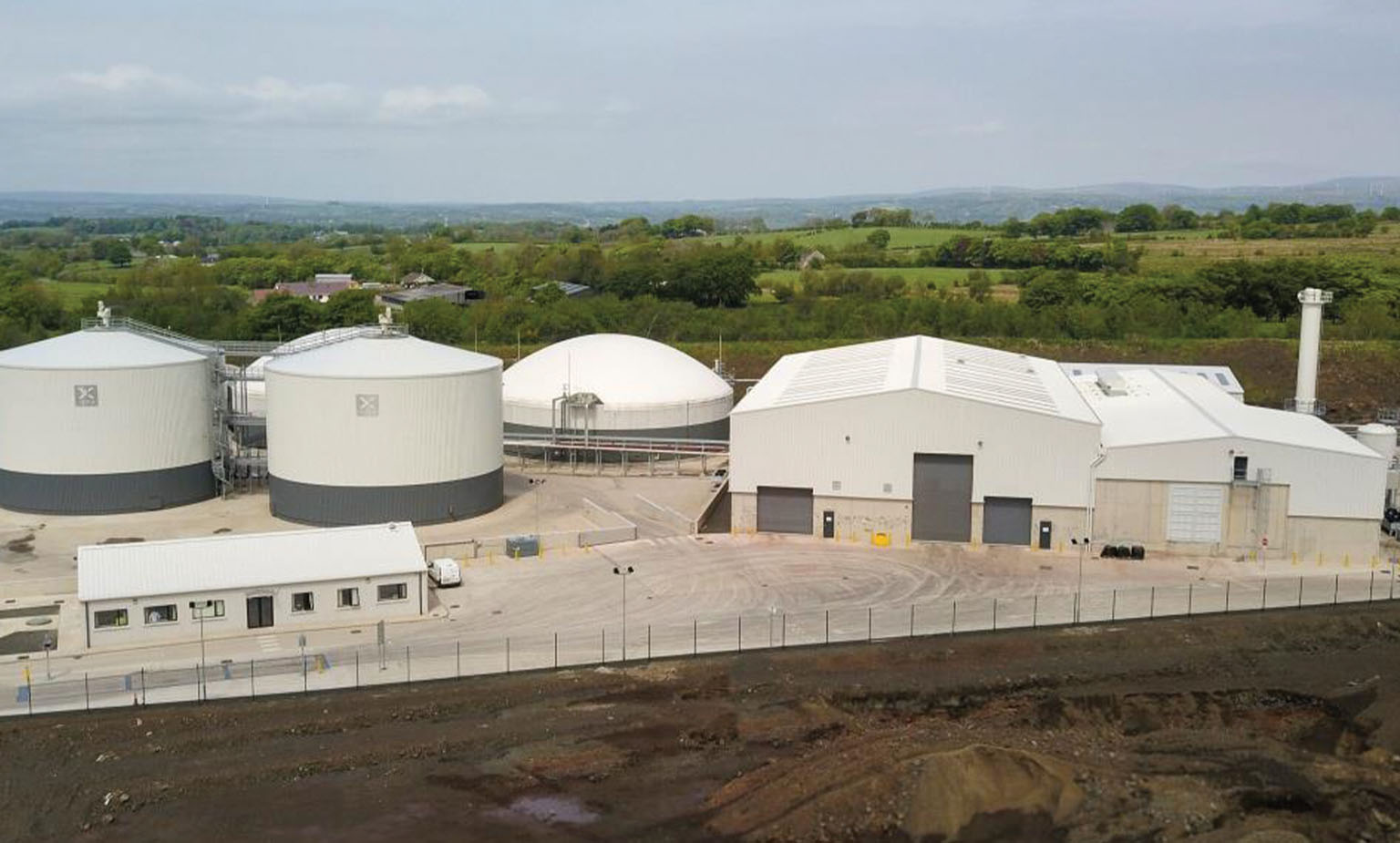Stream BioEnergy: Pioneering biomethane in Ireland

Ireland must seize the opportunity to create a sustainable biomethane industry in order to meet its climate targets, writes Kevin Fitzduff, Managing Director of Stream BioEnergy.
In the evolving landscape of renewable energy, biomethane is rapidly gaining traction as a sustainable and versatile energy source. Among the frontrunners in this burgeoning sector is Stream BioEnergy, a company with ambitious plans to build large-scale waste biomethane plants across the island of Ireland.
These facilities will convert organic waste into renewable gas, offering sustainable energy generation while addressing waste management challenges. These projects represent not only a significant investment in Ireland’s renewable energy infrastructure but also a crucial step towards the nation’s energy independence and carbon neutrality goals.
Dublin-based Stream BioEnergy operates biogas projects in Northern Ireland and Britain that utilise anaerobic digestion technology to convert organic wastes into renewable energy and nutrient rich biofertiliser. Stream’s first project in the Republic of Ireland will start construction in autumn 2024. Located in Little Island, County Cork, it will convert 90,000 tonnes of domestic and commercial food waste into biomethane to be injected into the gas grid.
Here, I outline Stream BioEnergy’s vision, the broader benefits of the biomethane sector, and the crucial role the Renewable Heat Obligation (RHO) must play in driving the industry to meet the Irish governments target of producing 5.7 TWh of indigenously produced biomethane by 2030.

The benefits of biomethane: a closer look
Contribution to climate targets
While recent years have seen strong progress on the decarbonisation of the electricity sector other areas have lagged behind. The versatility of biomethane makes it an attractive option for hard-to-decarbonise sectors, such as heavy industry, long-haul transport and older housing stock which are harder to electrify. Biomethane plays a critical role in reducing emissions from these sectors because it can directly replace natural gas in heating applications.
Environmental sustainability
One of the most compelling benefits of biomethane is its contribution to environmental sustainability. Biomethane production utilises organic waste—such as agricultural residues, animal manure, and food waste—that would otherwise decompose and emit methane, a potent greenhouse gas. By capturing this methane for energy production, biomethane plants significantly reduce greenhouse gas emissions.
In fact, biomethane is considered a carbon-neutral fuel because the carbon dioxide released during its combustion is offset by the carbon dioxide absorbed during the growth of the organic material used to produce it.
Moreover, the other products of the anaerobic digestion process are nutrient-rich bio-fertilisers, closing the loop in a truly circular economy. This process not only reduces reliance on chemical fertilisers, which are energy-intensive to produce and contribute to environmental degradation, but also enhances soil health, promoting sustainable agriculture.
“Biomethane could become a cornerstone of Ireland’s renewable energy portfolio…”
Kevin Fitzduff, Managing Director, Stream BioEnergy
Energy security and independence
Ireland has historically been dependent on imported fossil fuels to meet its energy needs, making the country vulnerable to volatile global energy markets. Biomethane presents a viable solution to this challenge by providing a domestically produced, renewable energy source. As Stream BioEnergy’s plants come online, they will inject biomethane into the national gas grid, reducing Ireland’s reliance on imported natural gas.
Economic development and job creation
The development of a robust biomethane sector offers significant economic benefits for Ireland. The construction and operation of biomethane plants will create jobs, supporting local economies and contributing to regional development. A significant portion of the capital investment will be spent on local services. Jobs will span a range of roles, from plant operations and maintenance to logistics and feedstock supply, offering opportunities in both skilled and semi-skilled positions.
Impact of the Renewable Heat Obligation (RHO)
Heating is one of the most challenging sectors to decarbonise, particularly in industrial and commercial applications. Biomethane, with its ability to replace natural gas in existing infrastructure, offers a practical solution to this challenge. There has been little growth in Irelands biomethane sector to date due to the lack of government supports but the Renewable Heat Obligation (RHO) is poised to change that.
The RHO, which is due to be published in autumn 2024, is a policy mechanism that mandates heat suppliers to source a percentage of their energy from renewable sources. It will significantly increase the demand for biomethane as heat suppliers seek to meet their renewable energy targets. This will provide a stable market for biomethane, encouraging Stream BioEnergy and other producers to invest in new plants and infrastructure.
It is expected that the RHO will significantly increase the demand for biomethane as heat suppliers seek to meet their renewable energy targets. In order to attract both the domestic and international investors required for the expansion of the biomethane sector and to bring new projects to fruition, the RHO must create a stable market for biomethane sales at a viable price level.
For companies like Stream BioEnergy, the RHO represents both an opportunity and a catalyst for growth, enabling them to scale up their operations and contribute significantly to Ireland’s transition to a sustainable energy future.
Stream BioEnergy’s role in shaping Ireland’s energy future
Stream BioEnergy’s initiative to develop biomethane plants across Ireland is not just a business venture; it is a significant contribution to Ireland’s energy transition. Stream BioEnergy is implementing an extensive plan to establish multiple large-scale biomethane plants across Ireland. By focusing on biomethane, Stream BioEnergy is helping to build a sustainable energy system that aligns with Ireland’s environmental and economic goals.
The company’s projects will provide a scalable, renewable energy source that reduces greenhouse gas emissions, enhances energy security, and supports local development.
As these plants come online, they will represent a significant milestone in Ireland’s journey towards a low-carbon future. With the right policy support and continued investment, biomethane could become a cornerstone of Ireland’s renewable energy portfolio, driving the country towards a more sustainable, secure, and prosperous energy future.

For more information:
W: www.streambioenergy.ie/





